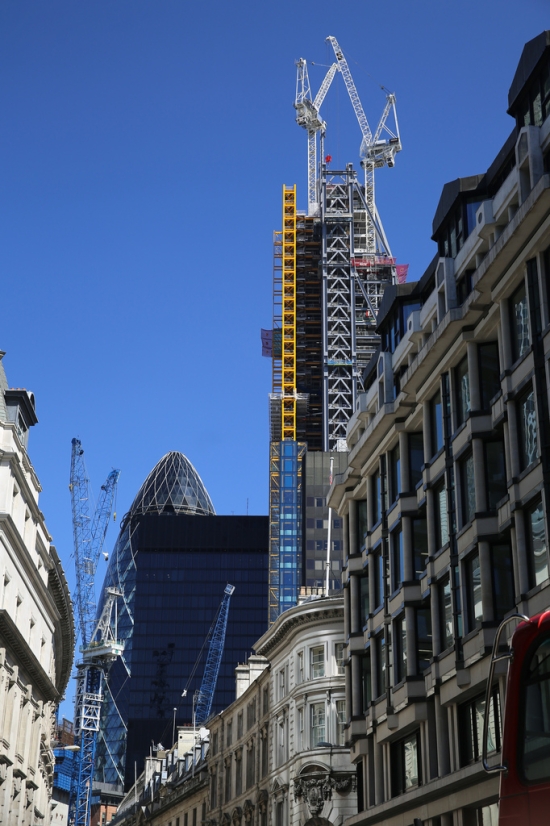British Land, which posted its full year results this week, has placed its mainland European retail portfolio up for sale in order to concentrate on expanding its core UK interests. However chief executive, Chris Grigg, is not expecting the disposal to be a quick one, due to current market conditions, but he stresses the announcement marks a ‘very clear statement of intent.’

The Leadenhall Building edges closer to topping out
British Land entered the mainland market in 2005 but has seen the value of its assets fall by 17 per cent as a result of the Euro crisis. But because these properties represent just a fraction of its £10.5 billion portfolio, the company has been able to report a strong yearly performance.
Mr Grigg said; “It’s been a highly active and successful year and we have demonstrated our strategy in action in the broadest sense.
“Profits are up despite the significant level of recycling and, at the property level, we have continued to outperform.
“Our investment activity means that business is stronger going forward and our recent share placing gives us significant capacity to take advantage of the increasing opportunities we see coming to the market.”
These opportunities are likely to be in London and the South-East where British Land has recently bought Ealing Broadway Shopping Centre and construction of the landmark Leadenhall Building, dubbed the Cheesegrater, is well underway.
In the past month the steelwork frame has been completed up to the 48th floor as the building edges closer to topping out. Although it is not scheduled for completion until the middle of next year it is already 51 per cent pre-let.
Insurance group Amlin is the latest tenant to come on board, signing Heads of Terms (HOTS) on 111,000 sq ft with the option to take a further 36,000 sq ft.
British Land’s 6 million sq ft of office space is focused on central London and the company’s investment in this market has been rewarded by levels of demand which have been largely unaffected throughout the economic crisis.
Mr Grigg confirmed British Land’s strategy to increase its core portfolio, saying he would be ‘disappointed’ if the company had not spent a further £500 million by the end of the financial year.
Previous Post
London Office Construction Hits Four Year High